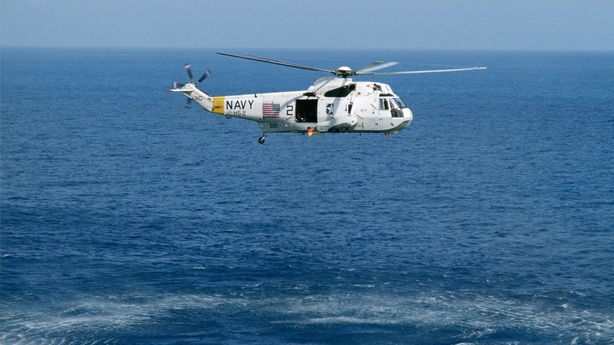By David McCullagh and Fiachra Ó Cionnaith
Proposals to manufacture or repair weapons of war in Ireland were rejected by successive governments, concerned about neutrality and the political implications of involvement in the arms industry.
The records released by the National Archives show officials in the Department of Foreign Affairs had "serious reservations" about the proposals, despite the potential jobs boost at a time of historic levels of unemployment.
They feared Irish-made or repaired weapons could be used in theatres of war or to assist "oppressive regimes" without Ireland having any say in the matter.
The earliest request in the records was from Dutch company Eurometaal NV, which wanted to set up a firm in Ireland to produce "artillery shells for export" in 1980.
Minister for foreign affairs Brian Lenihan was "extremely dubious" about the suggestion, despite potential employment, because it would expose Ireland to "very considerable public criticism if we give the go-ahead for substantial arms export of this kind, especially as the firm has indicated to countries of the Middle East and South America".
Two years later, in October 1982, German firm Thyssen Henschel proposed the production and export of tanks from Ireland.
Read more:
Netanyahu lobbied for Dublin embassy, State Papers show
SF, govt had 'sharp exchange' over criminality comments
Gerry Adams pushed for US visa to allow fundraising
Iran offered 'secret meeting' to help free Brian Keenan
State Papers: Six more things we learned
Foreign Affairs and the Department of Trade, Commerce and Tourism opposed the suggestion, which they thought was an attempt to "get around restrictions" imposed in what was then West Germany.
Foreign Affairs said the manufacture of "major offensive weapons raises fundamental issues of foreign policy...In the absence of specific legislation, these exports would not be subject to control and could presumably be sent to any area of the globe including areas of tension and countries governed by grossly oppressive regimes".
A further offer was made in October 1986 by an unnamed company to establish a repair facility for foreign military and civilian helicopters in Shannon.
The Department of Foreign Affairs said the helicopters would be of US origin and would probably be sent to Greece, Morocco, Saudi Arabia, Turkey and Pakistan.
Officials thought this was "undesirable" because some of the helicopters might have been damaged in combat and would return to combat after repair.
This would not, they thought, be "consistent with the image of Ireland we actively seek to promote".
At least three further attempts by firms based in NATO-member nations to set up a base in Ireland to repair equipment ranging from plane engines to helicopters were made between 1986 and the early 1990s, all of which were viewed dimly.
One came from SIFCO, an Irish-based subsidiary of a US firm.

Foreign affairs concluded the proposal was "a bridge we would not cross" as "presumably military aircraft would be the main item of business".
Another involved a 1993 proposal that a section of Aer Lingus would repair "non-combat military aircraft" from the US Air Force.
But the clearest expression of Ireland's position came in 1990, when foreign affairs argued against an Aer Lingus subsidiary, Irish Helicopters, accepting an initial year's worth of repair work on US Navy helicopters.
The note said "this work is currently being carried out in Israel by MATA Helicopters, a division of Israeli Aircraft Industries", which wanted to move the work from Israel to Europe for unstated reasons.
The note said the helicopters are mainly used for transport, "apparently do not carry military devices", and are "not suitable for attack purposes".
However, the file concluded that the proposal "raises a number of significant issues", as it was unclear where exactly the helicopters would be used, and it would be undesirable to link Ireland to the repair "of military helicopters" and NATO equipment.
"If this application is approved, US naval helicopters maintained in Ireland may be used in areas of tension without our having any say in the matter," the department note warned.
[Based on documents in 2024/52/71]

